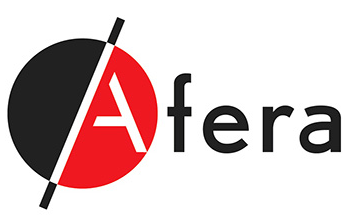
How do tape-related businesses, employers and managers attract future workforce?
 Many companies are facing difficulties in understanding, attracting and retaining the youngest generation of employees. Millennials (those born between 1983 and 1994) and Generation Z (those born between 1995 and 2002) account for half of the current global workforce and will increase in share to 75% by 2025. Deloitte conducts the annual Deloitte Global Millennial Survey among 13,000+ respondents over 42 countries with the goal of advising clients on what is important for these groups and how they can better meet their expectations. In Issue 9 of Afera News, Deloitte Human Capital Consulting’s Christiane Schober discussed the shift in who is entering and leaving the workforce and what companies can do to recruit and invest in younger-generation employees. Read her blog here.
Many companies are facing difficulties in understanding, attracting and retaining the youngest generation of employees. Millennials (those born between 1983 and 1994) and Generation Z (those born between 1995 and 2002) account for half of the current global workforce and will increase in share to 75% by 2025. Deloitte conducts the annual Deloitte Global Millennial Survey among 13,000+ respondents over 42 countries with the goal of advising clients on what is important for these groups and how they can better meet their expectations. In Issue 9 of Afera News, Deloitte Human Capital Consulting’s Christiane Schober discussed the shift in who is entering and leaving the workforce and what companies can do to recruit and invest in younger-generation employees. Read her blog here.
Demographic change in the workforce: an insight into Millennials, “a generation disrupted”
At Afera’s Lisbon Conference a few weeks ago, Ms. Schober, who is a psychologist and economist by training, built upon her initial assessment of the job market, revealing the findings of an Afera Workforce Outlook 2030 Survey and sharing valuable insights into current workforce trends and anomalies linked to the tape industry.
Shifting age structure
Joseph Coughlin, founder of the MIT Age Lab, has said “the aging of populations represents the most profound change that is guaranteed to come to high-income countries everywhere.” Ms. Schober explained that the age structure of her clients is shifting, so we must consider the different needs of a population that is growing, aging and becoming more diverse. 5 generations of workforce now coexist, a dynamic that business has not dealt with before now.
Shortening half-life of skills
Right now, estimates put the half-life of a professional skill at around 5 years. Half of those skills we acquired a decade ago have already been replaced by new technologies and trends. R&D is speeding up, and the tape industry workforce needs different skill sets. By 2020, more than one-third of the skills we need, regardless of industry, will have changed.

What Afera Member Companies say
According to the approximately 30 Afera Member Companies which participated in the recent Workforce Outlook 2030 Survey, 65% believe recruiting and talent retention is “relatively hard” or “a big issue”. The top concern is finding the right candidates for R&D, followed by engineers and technical specialists.
57% said that it is very hard to find the right people in marketing and sales too. Half of the respondents said that not finding the right people is the #1 limitation for growth. “So this is more than an HR topic,” Ms. Schober emphasised. “Recruiting and retention problems are actually impacting businesses directly.”
High competition and low fluctuation in the tape labour market
Competition in recruitment within the adhesive tape market is high due to the peculiarity of the industry. The tape industry is a very specific niche within the chemicals industry, with many complexities and variances in the types of jobs on offer. “And the platform that Afera offers is valuable in strengthening the image and awareness of the tape industry,” commented Ms. Schober. There is a lot of potential for raising the profile of the industry’s layers and segments in order to make it more attractive to various employment target groups.
Competition in salaries is also high among experts, according to Afera Member Companies. Furthermore, there is low employment fluctuation which has to do with the particularly high level of specialisation of the people working in the tape industry.
High rural presence of tape companies
There is a high rural presence of companies within the European adhesive tape value chain. Many, especially family-owned, companies are located in the countryside, where there is a relatively lower rate of unemployment. This factor contributes to making it hard to recruit experts into the industry. According to Ms. Schober, forward-thinking companies must overcome the urge to recruit external experts, instead focussing on employee learning and developing within companies in order to build and strengthen internal talent: “Companies should invest in determining the requirements and technology for proper learning and development internally, especially in times when recruitment is more challenging.”

“The last challenge for Afera Member Companies that I found very interesting,” Ms. Schober noted, “is that it is very hard to recruit talent with a combination of rural presence and an urban or cosmopolitan mindset that are drawn to the industry.”
The future of the workforce is the future of the adhesive tape industry
“Given what half the workforce looks like presently, I see a lot of conservatism in the tape industry at my level,” remarked Afera President Evert Smit, who is also head of R&D at Lohmann GmbH & Co. KG. “How can we make our industry accept the inevitable about the young, diverse, faster-moving, more forward-thinking Millennials and Generation Zs making up the majority of our workforce? How do we change the mentality of the older, white, male conservatives at the top making strategic decisions and supervising the younger workforce?”
“First of all, not every Millennial is innovative, so of course you have conservative employees among the 2 younger generations,” Ms. Schober explained. “Furthermore, this is a cultural issue within companies, and Deloitte has a tool with which it works with clients on precisely this issue.” In some cases however, attitudes are hard to change without a certain acceptance and willingness to look at operating differently on the part of older generations.
Download the complete slide presentation of Christiane Schober (Members only)
Go to overview of Lisbon Conference topics
Learn more about Afera membership

